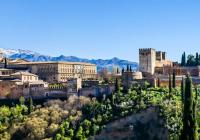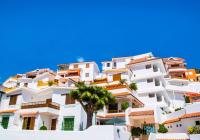
Easter is considered one of the most significant holidays in Spain, and it is fast approaching. In 2022, Easter week will run from the 10th April to the 17th April, with Good Friday falling on 15th April and Easter Sunday falling on 17th April. Good Friday (15th April) is a national holiday in Spain and, in many autonomous communities, 14th April is a regional holiday too meaning that many Spaniards have a significant period of holiday time to spend time with friends and family, and celebrate the holiday season.
With that in mind, here’s everything you need to know about Easter in Spain:
What Happens During Easter in Spain?
If you’re spending Easter in Spain then you will often hear it referred to as Holy Week (or Semana Santa) and it is the biggest religious celebration of the year in the country. As well as enjoying time off work and eating delicious foods, like so many people from all countries do during the Easter period, in Spain people also take the streets to watch and enjoy elabourate parades and processions. These are also known as penance processions, and are organised by cofradias, or brotherhoods, that have been active and hosting these traditional parades since the Middle Ages.
The members of the brotherhood in each town and city will parade from their home church to the city’s cathedral whilst being led by a giant cross that is carried at the front of the procession. Other key elements of the Semana Santa processions include:
- Live marching bands playing religious music to accompany the parades
- Men wearing traditional robes known as capirote. This costume comprises of a tall conical hat that covers the face and a belted robe. Sadly, the robes look similar to those worn by the Ku Klux Klan, but they have nothing at all to do with this faction. Instead, the capirote is one by those doing penance and atoning their sins: it covered their face so they could walk through town without revealing their identity.
- Women also wear traditional costumes, which almost always includes wearing a mantilla: this is a black lace veil worn on the back of the head.
- Participants in the parades will carry large floats in the air. These are adorned with sculptures, usually depicting Jesus or Mary, and are often designed by renowned Spanish artists. The floats are covered in flowers and candles, adding to the festive feel of the event. Many brotherhoods have owned and preserved their floats for hundreds of years.
Where Are the Best Semana Santa Parades in Spain?
You will find Semana Santa parades all over the country, both big and small, but the right one for you will depend on what you’re looking for.
- For a glamorous experience look to Andalusia. The cities of Seville, Granada and Malaga all celebrate their flamenco culture as part of their Semana Santa celebrations and these are a big draw for tourists. Seville holds some of the biggest Holy Week processions including La Madruga (dawn), a series of processions that take place during the night of Maundy Thursday and into the morning of Good Friday, a highlight of Semana Santa for many spectators.
- History lovers will enjoy the parade in Zamora, which is the oldest celebration in Spain. During holy week as many as 300,000 people visit the city to see the ancient parade
- If you want a more sombre, religiously authentic event then head to Castille La Mancha where the Semana Santa events have a more serious tone.
- Art lovers should head to the procession in Valladolid, which has some of the most impressive floats in Spain. The city’s National Sculpture Museum donates over 100 images to be used during the processions, making it one of Spain’s most artistic parades.
- When looking for the right place to celebrate Semana Santa you should be aware that not all regions celebrate in the same way: big processions are not common in Catalonia, for example, so it’s not the place to be if you’re looking for an elabourate celebration.
Will Easter Be Impacted by Covid Restrictions This Year?
The current covid restrictions that are in place not likely to be removed before the Easter parades and celebrations, but the good news is that the current restrictions are relatively loose, and these are not expected to be tightened again. Each autonomous region has its own coronavirus restrictions in place, so the rules you will be expected to adhere to will depend on where you choose to watch the parades.
The Ministry of Health has not advised that Semana Santa events are cancelled again this year. However they have advised that distances are kept between people in the parades and that spectators are spaced out as much as possible. In some regions, you may be asked to wear facemasks if crowd levels mean that social distance between spectators can’t be maintained. For example, the Minister of Health and Families of the Andalusian government, Jesús Aguirre, has said that citizens must wear masks when they are in crowds.
What Should You Eat in Spain This Easter?
Britons are used to tucking into large chocolate Easter eggs followed by a roasted leg of lamb on Easter Sunday, but what delicacies should you seek out if you’re spending the holiday in Spain? Here are some of the most popular sweet treats that are traditionally enjoyed across Spain during Holy Week:
- Torrijas are a sweet treat comprised of bread that is soaked in milk and egg, then deep fried and served with sugar or honey. You can buy this popular dish all over Spain during Semana Santa.
- Pestinos are sesame-flavoured dough balls that is fried then glazed with honey or sugar. Whilst these are eaten all over Spain during Semana Santa, they are especially popular in Andalusia.
- Monas de Pascua are traditional easter cakes in Catalonia and Valencia: sweet cakes topped with either hard-boiled or chocolate eggs.
Thinking of visiting Spain over the Easter period? Are you wondering how to buy in Spain whilst you’re enjoying your Easter break? Perhaps you’re hoping to invest in new build properties in the Costa del Sol or find Spanish villas for sale? We can help! Our local property experts are perfectly placed to offer all of the help and support you need. Why not get in touch today?

 English
English Español
Español Deutsch
Deutsch Français
Français Svenska
Svenska Nederlands
Nederlands Italiano
Italiano Norsk
Norsk Русский
Русский

































